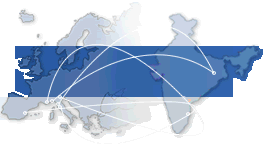


News |
Germany and India step up science & technology cooperationOn Monday, 8th September, Germany’s Minister of Education & Research Annette Schavan comes on a two-day visit to India. On Monday, 8th September, Germany’s Minister of Education & Research Annette Schavan comes on a two-day visit to India. Her first stop is Chennai, where she participates in the golden jubilee celebrations of IIT Madras, a flagship project of Indo-German cooperation in higher education. In Delhi on the 9th, Minister Schavan launches a series of cooperation initiatives in the field of science and technology along with Kapil Sibal, the Indian Minister for Science and Technology and Earth Sciences. India and Germany have had over five decades of cooperation and exchange in the field of science and technology. India is a priority partner of Germany in Asia and science and technology cooperation (STC) is one of the most important strategic goals for the future of German-Indian relations. This was also underlined by German Chancellor Angela Merkel and Indian Prime Minister Manmohan Singh in the German-Indian Joint Declaration signed in April 2006 during the Indian Prime Minister's visit to Germany. One of the aims of the High-Tech Strategy for Germany is to increase collaboration in growing markets with countries that have a dynamic research environment. Due to the rapid expansion of its research and development expertise, India is a very attractive partner for Germany. Since India’s independence, approximately 1,300 scholarship holders of the Alexander von Humboldt Foundation and more than 2,500 DAAD scholarship holders have travelled to Germany for short-term and long-term research projects. Today, highly qualified persons, especially scientists, high ranking university professors, scientific personnel and specialists can also get a permanent residence and work permit in Germany immediately. Germany’s STC with India falls within three complementary areas: Approximately 50 mobility measures of the German Ministry for Education and Research (BMBF) provide support to about 75 Indian scientists and engineers who come to work at German universities and research institutions every year. They also enable approximately 75 German scientists to travel to India each year. In these projects, Indian funding organisations cover the stays of Germans in India and the flight expenses of the Indians travelling to Germany. In addition to the mobility measures, approximately 15 individual visits with the aim of establishing initial contact and an average of five bilaterally financed workshops are supported every year. In recent years, the number of Indian students in Germany has increased considerably. The number of Indian students is increasing more rapidly than the percentage of students from any other country – it has risen by 500% since 1997. On the occasion of the EU-India Science Summit organised under the German EU-Presidency in New Delhi in February 2007, India became a partner in the 1.2 billion euro FAIR (Facility for Antiproton and Ion Research) project. The two countries have also been cooperating successfully in other fields such as language engineering and artificial intelligence, environmental research and nanotechnology. World-class research institutions like the Max Planck Society for Basic Research, the Fraunhofer Society for Applied Research and the Helmholtz Association are active in India. The forthcoming visit of Minister Schavan will be her third trip to India since 2007. After her last visit with Chancellor Merkel in October 2007, she emphasised that mutual mobility and exchange is profitable for both India and Germany. Schavan stressed on the importance of German students gaining technical and cultural experiences in India. For this, the federal Ministry has provided an additional 4.3 million euros to the DAAD programme “A new passage to India”, beginning in 2009. One of the most successful Indo-German scientific cooperation projects in recent times is the Science Express, which was launched by Chancellor Merkel and Prime Minister Singh from Delhi in October 2007. The mobile science exhibition installed on a specially designed train travelled through 57 Indian cities and attracted over 2.2 million visitors over a period of seven months. The exhibition was a cooperative venture between the Max Planck Society and India’s Department of Science & Technology (DST), with the support of BMBF and German companies BASF and Bosch. Source: German Information Centre New Delhi |
Partners |











